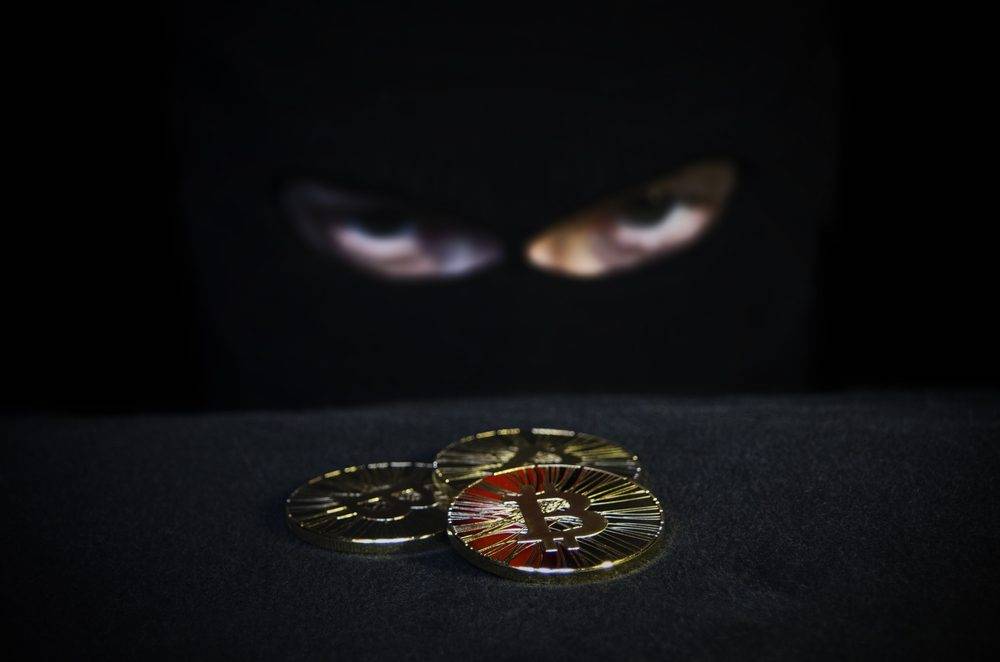Kidnappers In Nigeria Wanted NGN 5.4 Mn Ransom In Bitcoin To Protect Identity – But Is Crypto Really Untraceable?

How digital can crime get in Africa? This question is probably the reason some governments on the continent are banning cryptocurrencies. A recent drama in Nigeria beats around how Bitcoin can be used to perpetrate crime.
Certain kidnappers demanded BTC payments as ransom. This has raised questions, prominent of which is “Is Bitcoin really untraceable?”
What Did Bitcoin Do This Time?

Unknown criminals reportedly kidnapped the daughter of a Nigerian public office holder. As the story turns out, the 24-year-old was abducted in Abuja on Saturday and released the following day (local time). However, the gunmen let her go only after USD 15 K worth of BTC payment was sent to them.
Frankly, demanding crypto ransoms is nothing we haven’t seen before. But, this is the first time it’s happening in crypto-uncertain Nigeria. Nonetheless, it is not the first in digital currency-swayed Africa.
A similar event transpired in South Africa last year when the freedom and safety of 13-year-old depended on a swift Bitcoin transaction. As the story goes, the kidnappers demanded USD 120 K worth of crypto payments as ransom. Like the recent one in Nigeria, the ransom was paid, and the boy was set free.
Such events have also transpired outside the continent, including Ukraine and Costa Rica. Being that a significant number of African governments are skeptical about crypto and crypto-related schemes, a lot of questions are raised. But there’s one that seems to stand out, and will potentially determine whether the criminals can be apprehended.
Is Bitcoin Traceable Or Not?
All Bitcoin transactions are designed to be public. Typically, they are traceable and permanently stored on the blockchain-based network. The addresses involved are the only info that can be used to discover allocations and payment destinations. However, used addresses become stained by the history of all transactions they are involved with.
According to Bitcoin.org, anyone can see the balance and transactions of any BTC address. Users often have to let people see their real identities in order to receive services or goods – which means the addresses are not always anonymous. This is the reason the platform warns that BTC addresses should be used only once. As it appears, users are more than careful not to disclose their addresses.
A crypto expert, who prefers to remain anonymous, told WeeTracker that tracing BTC payments depends on the pattern of transactions on the receiver’s address. “If some forensic analyses are done on the address, there is a possibility it could bring up some answers,” adds the source.
People use multiple wallets for different transactions. That’s because they are advised so to remain anonymous. It enables users to isolate the transaction in a way that makes it impossible to associate them together. But, if there is an established pattern, then the user’s address can be traced. Because Bitcoin is pseudo-anonymous, there could be a loophole.
But Where To Now?
There are many Bitcoin exchange platforms and experts in Nigeria and other African countries. But it’s hard to see if anyone can trace Bitcoin transactions to stop this crime. Not only kidnapping cases but BTC scams as well.
In a just-published Cointelegraph story, it was revealed that the US Army is on the lookout for people who can trace Bitcoin in real-time. Perspectively, that’s a country that tripled its investment in blockchain intelligence in fall 2018. Most African countries are yet to go deep into cybersecurity, and Nigeria is one of them.
Co-founder of Nigerian crypto startup BuyCoinsAfrica, Eleanya Eke (also co-founder of Cashestate) told WeeTracker that tracking Bitcoin addresses depends on how the transaction was executed in the first place.
“If you send to a centralized exchange, then yes it’s traceable. If you send to a cold store personal wallet it’s harder to trace because as long as that wallet address doesn’t do any transactions, it’s hard to determine any owner.
But if the address sends to anyone who transfers to fiat you can trace it back. So depending on how it was sent, it could be untraceable, hard to track, or very easy to discover”.
South African crypto platform SAFCOIN says it’s the responsibility of exchange platforms to ensure that effective measures are in place to identify who they are dealing with. The African digital currency says doing so will make it easier to tie wallet addresses and their users together, enabling local authorities to track and act faster on such crimes.
“Crypto enthusiasts should make use of trusted, secure exchanged to decrease the reate of crypto-related fraud and criminal activities. In this instance, exchanges can work with government and investigation agencies to establish which exchanges are fraudulent, and where the culprits would try to cash out”.
To protect their information, users create new addresses each time they receive new payments. No information has been received regarding the kidnappers in Nigeria and their BTC address. Carting away USD 15 K (NGN 5.4 Mn) has to come with some safety precautions. But that’s if the culprits actually know how to protect their identity.
Notice: We have updated the article with comments and suggestions from South African cryptocurrency platform SAFCOIN to reflect what can be done regarding the BTC crime.
Featured Image: CCN